
Ask DadPad, Attachment and Bonding, Key Content, Parenting Advice
Ask DadPad: How do I bond with my baby?
Posted on 3rd July 2020
As a new parent, you’ll hear a lot of talk about bonding, but what is bonding and why is it important? In this article, we’ll attempt to explain, and we’ll also give you – as a new dad – some ideas on how you can take steps to give you the best chance of forming a strong, positive and loving bond with your new baby.
What is bonding?
A few weeks ago, we shared an article all about your baby’s mental health and wellbeing. Within this, we explained that: “Attachment is the link – or bond – that is experienced between a baby and its parents or caregivers.” We also explained some of the benefits of ensuring that your baby experiences a secure attachment:
A child or person that has benefitted from a secure attachment will be more ‘protected’ from the challenges which will come with life. Although no guarantee of lifelong good mental health, the securely attached child will have the ‘toolkit’ in place to be more resilient, confident and adaptable when coming up against difficult situations; they are also more likely to have good self-esteem, self-control, and the ability to empathise with others. Importantly, because of all of this, they will be better able to thrive and take full advantage of all opportunities – especially in terms of education – that they receive in life. What an amazing gift to be able to give to your child!
Bonding, then, is forming this attachment with your baby.
But isn’t bonding just for mum?
For generations, there probably was an assumption that bonding was something that only happened between mum and baby, partly because mum has carried the baby for nine months and given birth – with all the hormonal changes that that brings – and partly because mum is the one who has traditionally provided all of the hands-on care for baby in his first few days, weeks and months of life.
Certainly, the bond between mum and baby is unique, and mum definitely has the advantage in forming an attachment, due to the hormonal and biological link between her and baby, established through the experiences of pregnancy, birth and breastfeeding. These events will have deluged mum and baby with positive, feel-good hormones, including dopamine, oxytocin and beta endorphin.
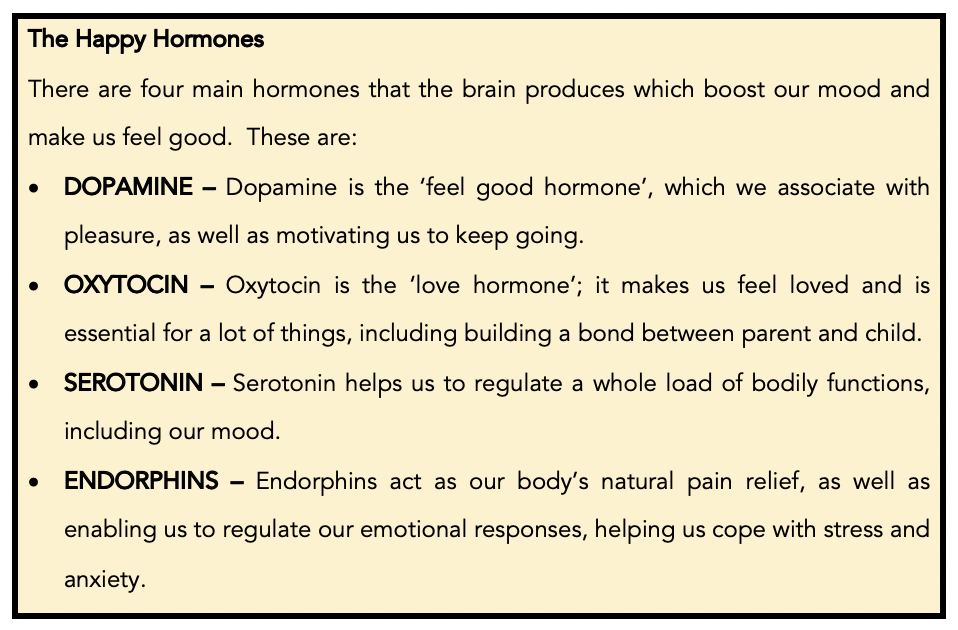
This is not to say, though, that dads are incapable of bonding with their children; it’s just that it happens in a different way, and it also has a different purpose and a different basis.
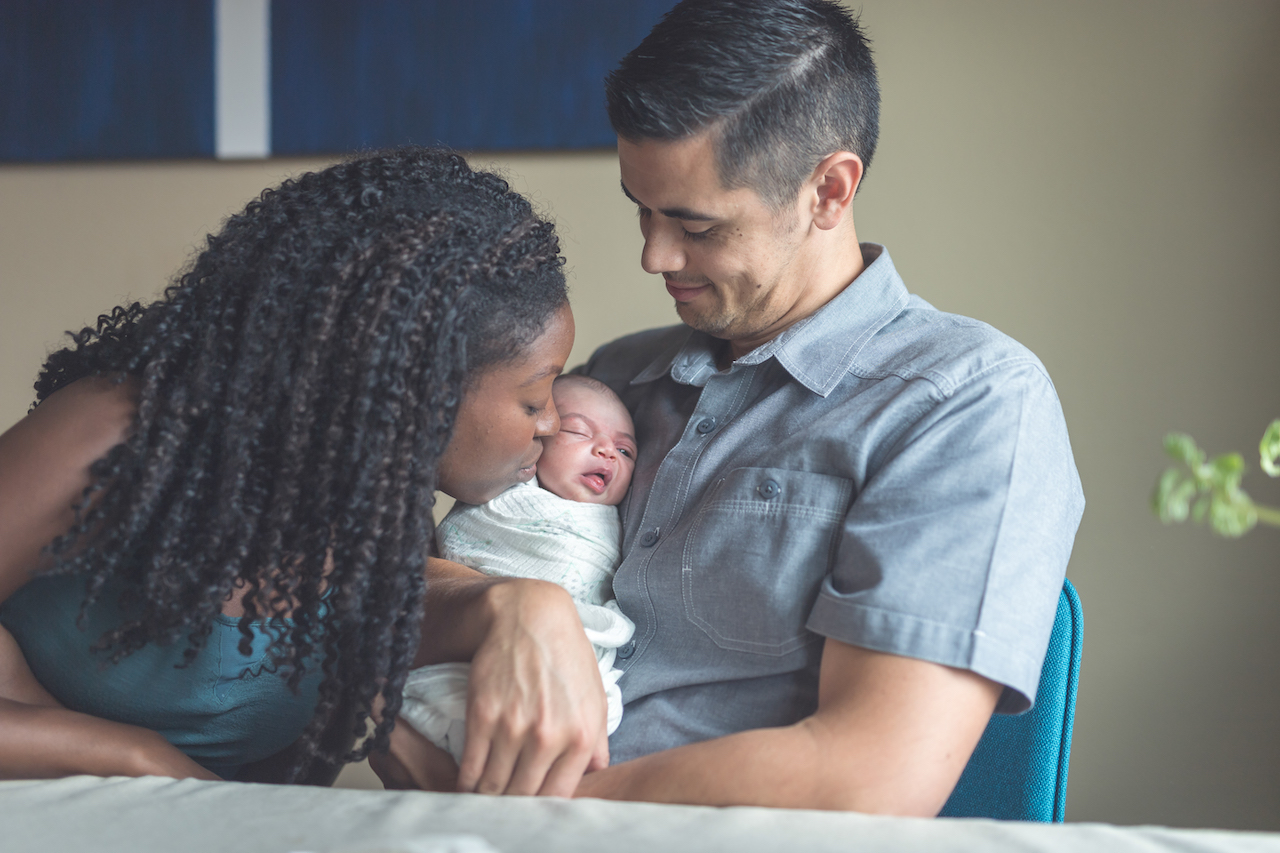
A dad’s bond
Evolutionary anthropologist Dr Anna Machin – an expert in the science and anthropology of fatherhood – contends that a dad’s bond with his children is established not through personal experience but via interaction.
Further, the bond that dad has with his children will not have the same basis as the bond that they will have with their mum. Dr Machin explains:
In the first instance, the attachment between the mother and the child is inward-looking, exclusive, based on affection and care. The dad’s attachment is also, obviously, capable of being affectionate and caring but on top of this there’s an extra bit: his job is to challenge, to be the secure base from which the child goes out into the world to investigate what is going on. His role is to teach the skills – behavioural, linguistic, cognitive – that will enable that child to deal with life’s challenges, assess its risks, and leap over those hurdles; to deal with failure, but also with success. We live in the most complex social and technological world, and dad’s job is to turn the child’s face to that world and say: “Here is the world and I am going to teach you how to be successful in it.”
So, as a dad, you are there not only to nurture your child, but also to challenge and build your child’s confidence. [If you want to learn more about the bond between dads and children, have a look at Dr Machin’s short YouTube video at the bottom of this page.]
It is therefore of critical importance that you – as a dad – get involved and ‘hands on’ with your baby, right from the very start.
How do I give myself the best chance of bonding well with my child?
One thing that it is worth remembering is that – because your bond hasn’t had the initial hormonal, intense experiential start that mum’s has – a bond between dad and baby can sometimes be delayed. This doesn’t mean that you aren’t going to be a good dad or that you should give up; it’s just that it might take a little time and effort on your part to get that attachment established.
Another important thing to note is that dads sometimes believe that breastfeeding means that they won’t be able to bond and/or be involved with their baby’s early days – that this time is ‘all about mum’. However, this isn’t true: there are lots of alternative ways to interact and bond with your baby that are just as important and just as valuable.
One of the best things that you can do, right from Day One of your child’s life, is to have what are called skin-to-skin cuddles with your baby. This is usually something that you’ll get to witness immediately after birth, between mum and baby, as it’s a recognised way of getting baby and mum calm, helping baby regulate its heartbeat, breathing and temperature and, importantly, helping to get breastfeeding established. However, it’s increasingly recognised that skin-to-skin is just as vital between dad and baby, too.
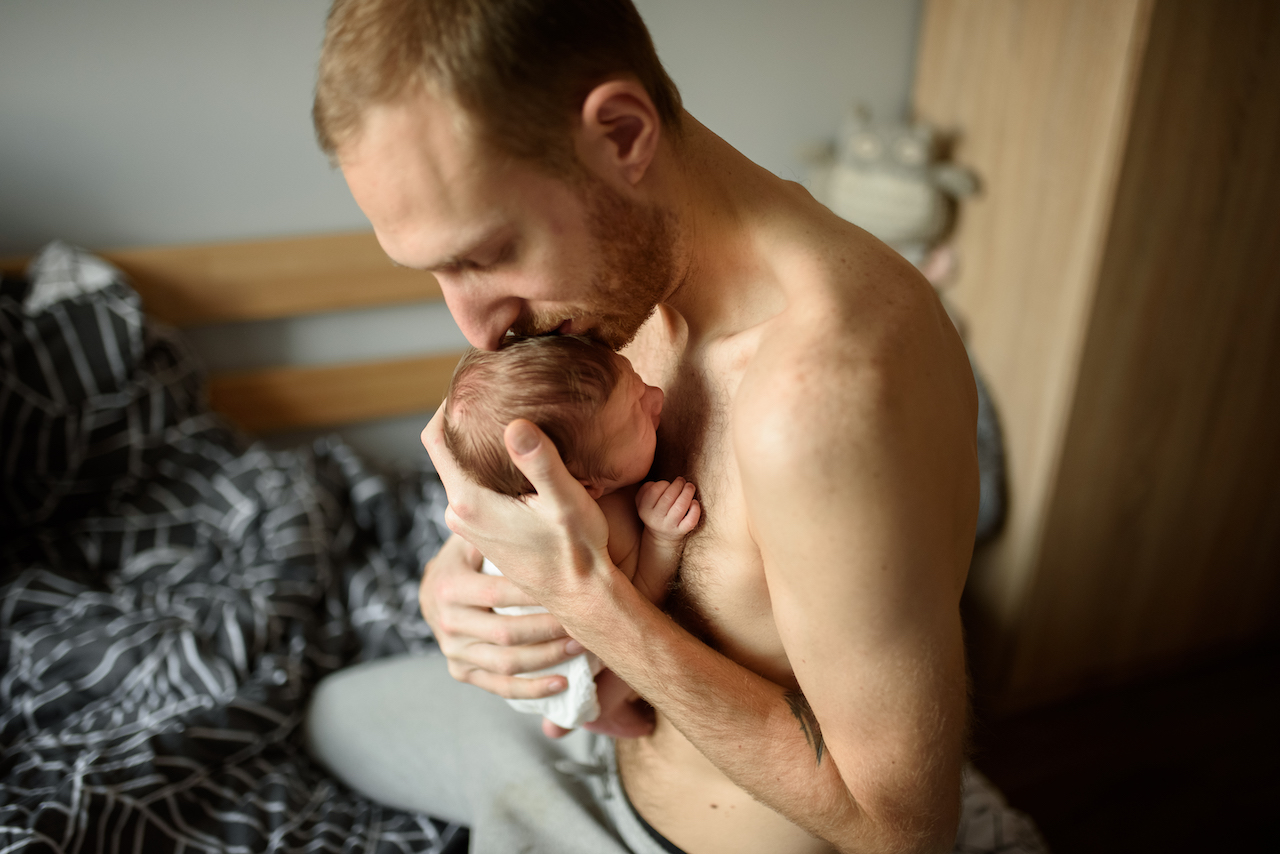
To do this, get yourself comfy in a chair in a warmish room, strip baby down to his nappy and then cuddle him up against your chest, either under your shirt/jumper or with a light blanket tucked around you both. Baby will get to feel your warmth, hear your heartbeat and smell your skin – all of which should help him feel calm and relaxed, and hopefully the same will be true for you, too. Irish midwife and childbirth educator, Avril Flynn, encourages dads to enjoy skin-to-skin cuddles with their new babies:
Just half-an-hour of skin-to-skin for dad essentially rewires their brain by increasing dopamine and oxytocin and lowered testosterone, meaning dad will have an automatic positive association from close contact with their baby…. It is such a lovely way for dads to feel close and have that connection with their little one…
Connected to this also is baby massage, which gives you and your baby the chance to chill out together, as well as providing lots of wonderful benefits for baby. These include helping his circulation, digestion and growth, and easing symptoms of colds, colic and teething. Most areas of the country will have baby massage classes easily available – some might be free and others may have a small cost. Have a look on the internet, or ask your Health Visitor for further information. A dad that we spoke to about baby massage said:
I really feel that all dads should go to baby massage. It gives you something to do with your baby and, when he smiles at me, I know it’s our special little moment.
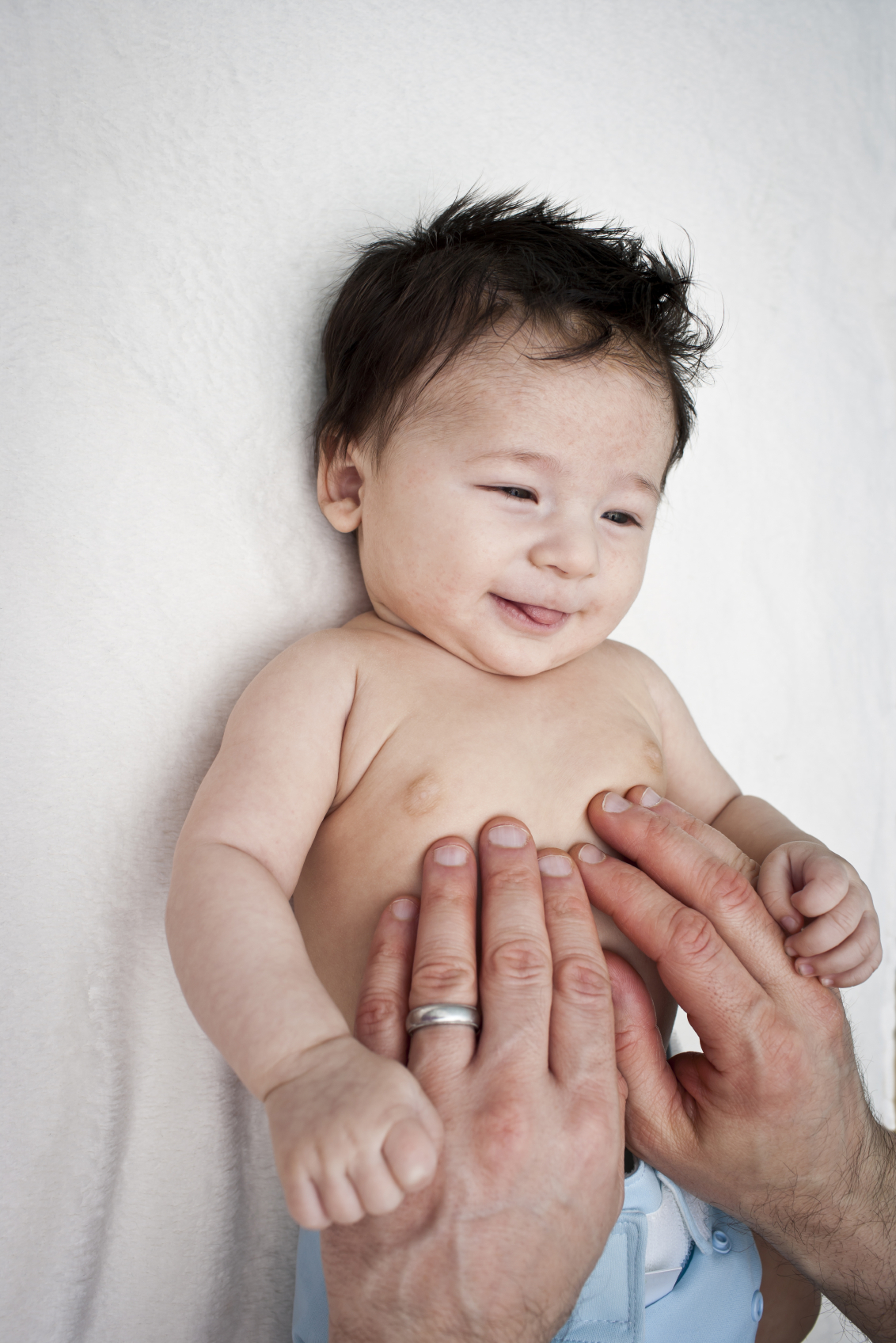
Another good way of building a connection is through communication. Talking to your baby with a gentle voice will help you get to know each other. Your baby will soon recognise, and turn his head to, the sound of your voice. You don’t need to worry about what you say to him: just try talking about what you’re doing together, or what you can see around you, as well as things like how beautiful he is and how much you love him. Singing to him – no matter how ‘bad’ you think you sound – is also a good thing. Try nursery rhymes, children’s songs, or even songs that you like; it’s all helping him get to know your voice and to feel loved.
In addition to verbal communication, don’t also forget non-verbal methods, too. Taking time to smile at, laugh with, and mirror emotions and expressions with your baby is important. Equally, observing your baby’s face as he reacts to you will help you learn to recognise the different feelings and emotions that he is sharing with you. It won’t be long before his facial muscles develop to enable him to smile, which is always hugely rewarding, and he will also start to ‘talk’ back to you.
A third way to interact with your baby is, of course, to get ‘hands on’ with his care. Things like changing his nappy, settling him to sleep, bathing and washing him, and going for walks with him will all help you and baby get to know each other. These can be your ‘special’ times together – a chance to touch, cuddle and/or communicate, all of which will help with bonding.
Finally, of course, dads have a huge opportunity to interact with their baby through play and learning. Obviously, what this involves will change as baby grows and develops, but ideas from an early age include:
- Simple interaction games, like counting fingers and toes, ‘peepo’, and encouraging baby to copy your expressions – e.g. slowly opening and closing your mouth, poking out your tongue, etc;
- Reading baby a bedtime story – this is a fantastic habit to get into, even when baby is very small. Although he might not understand what you are saying, he will recognise your voice and hopefully the routine will become a comfort to him; and
- Singing nursery rhymes and interaction games – e.g. This Little Piggy, Round and Round the Garden, Row, Row, Row Your Boat, etc.
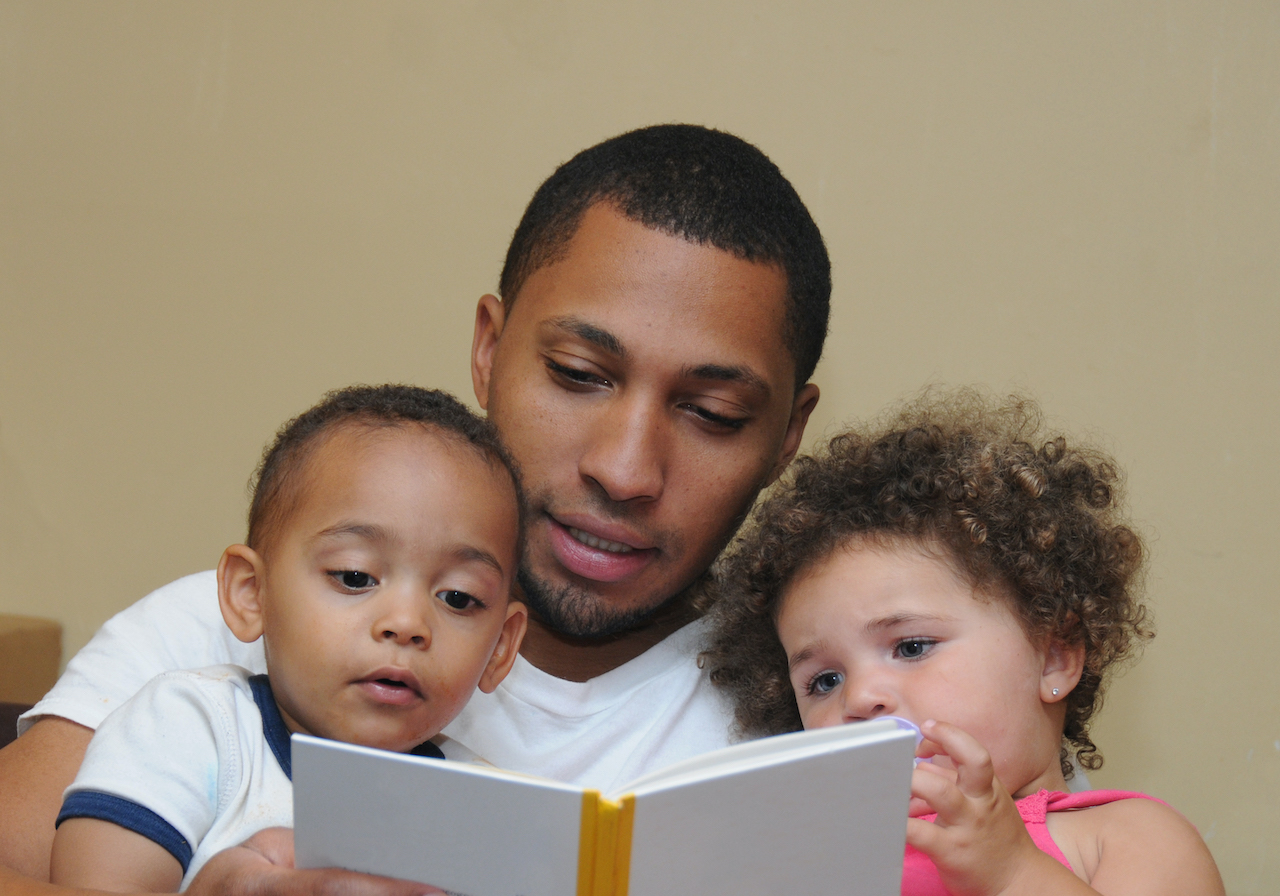
You might also like to take your baby swimming. Swimming with baby can be a wonderful experience for dads, giving you a chance to focus on your baby one-to-one. As well as being an enjoyable way to relax together, it also gives baby’s mum some time by herself. Our friends at Puddle Ducks have produced a useful “Babies & Swimming” guide which is available from their website – we’ve put the link at the bottom of this page.
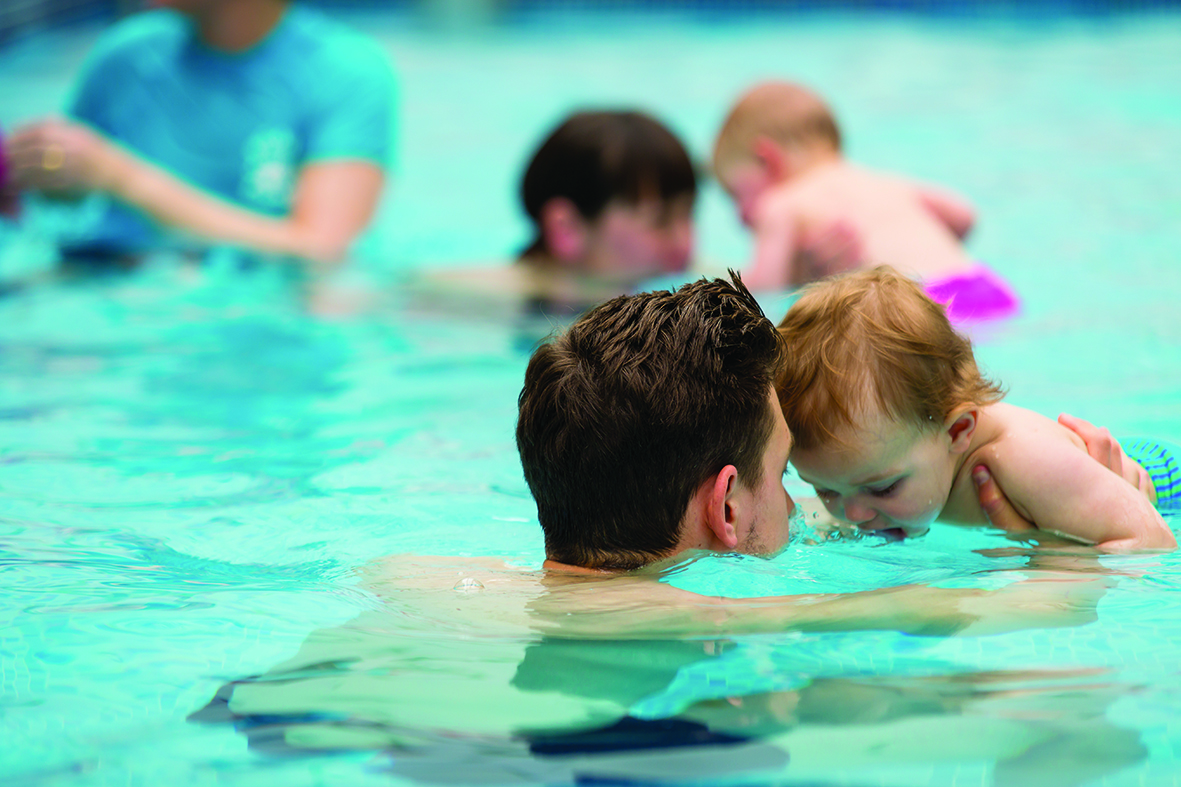
And, when your baby gets older, one of the most crucial ways for dad to interact with him is through rough and tumble play. Dr Machin says that this fast and furious, exhilarating and noisy form of interaction…
…works well because it’s a fast track to forming a bond. It releases increased floods of beta endorphin, oxytocin and dopamine for child and for father. And we know that children get a particular hit from playing with their fathers. In a time-poor world, rough and tumble play is an accelerated way of building a bond.
Added to this, a recent research study from Cambridge University has found that the more physical forms of play that dads typically engage in with their children – things like “tickling, chasing, and piggy-back rides” – help those children learn to control their feelings, were less likely to be aggressive, and were less likely to lash out at others at school.
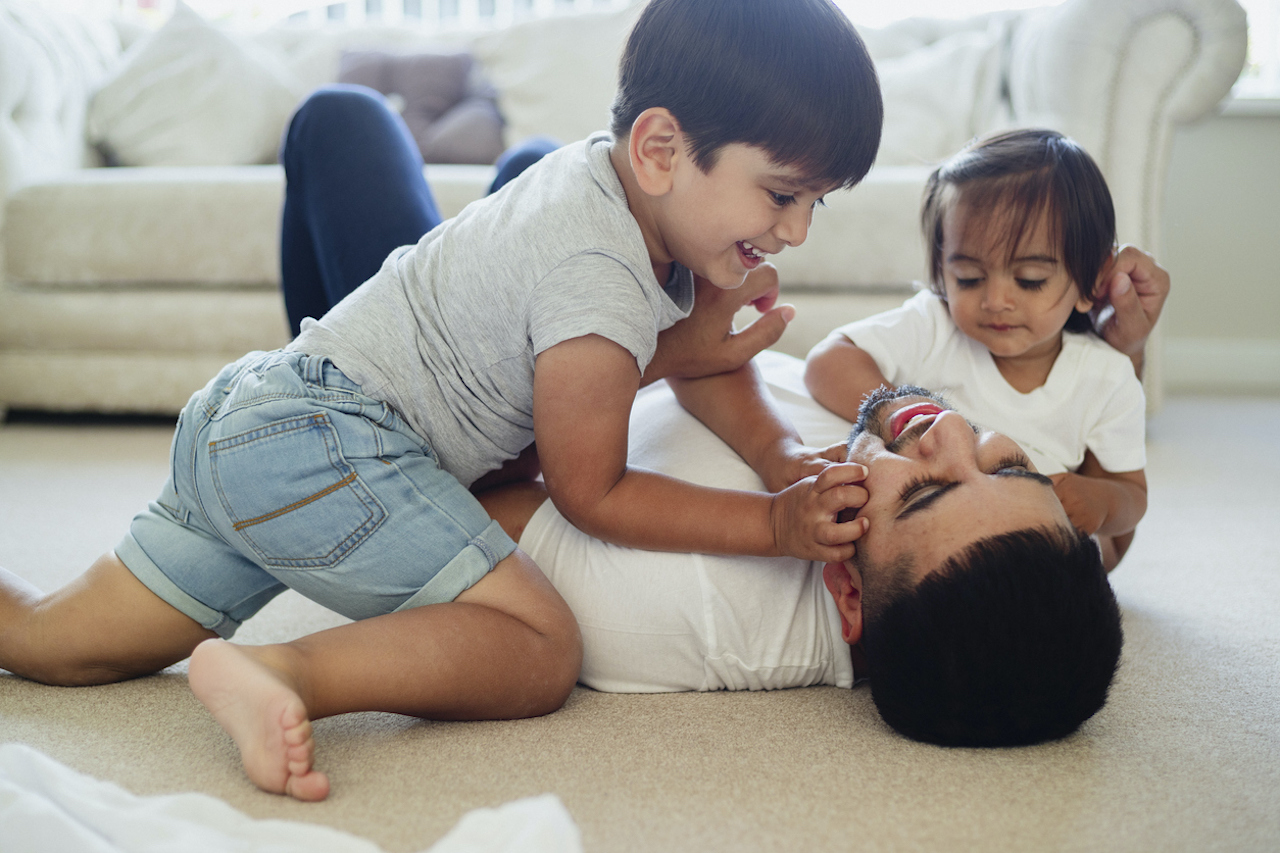
Professor Paul Ramchandani, professor of play in education, development and learning, explains:
Physical play creates fun, exciting situations in which children have to apply self-regulation. You might have to control your strength, learn when things have gone too far – or maybe your father steps on your toe by accident and you feel cross. It’s a safe environment in which children can practice how to respond. If they react the wrong way, they might get told off, but it’s not the end of the world – and next time they might remember to behave differently.
Don’t forget to get your copy of the DadPad or download the DadPad app (if available in your area) for more information on baby care and bonding, as well as finding details of local groups and classes which will support your family via the local services section on the app.
References and links to further reading:
Dr Anna Machin’s What’s different about being a dad video:

